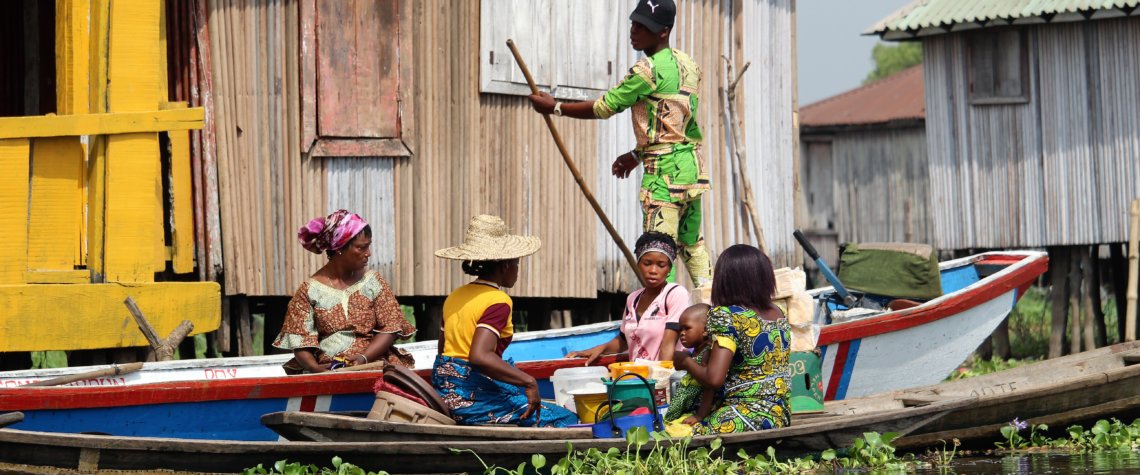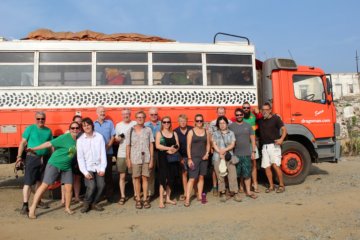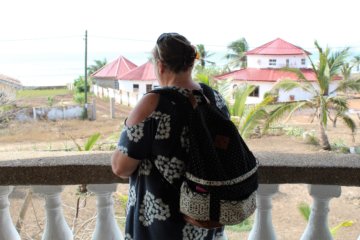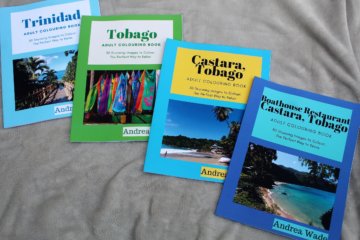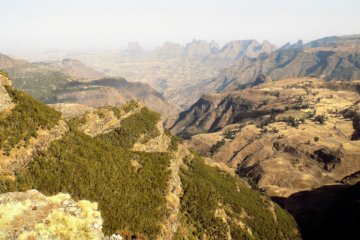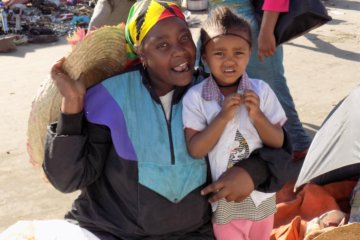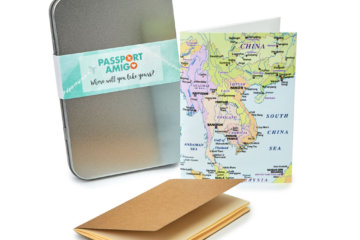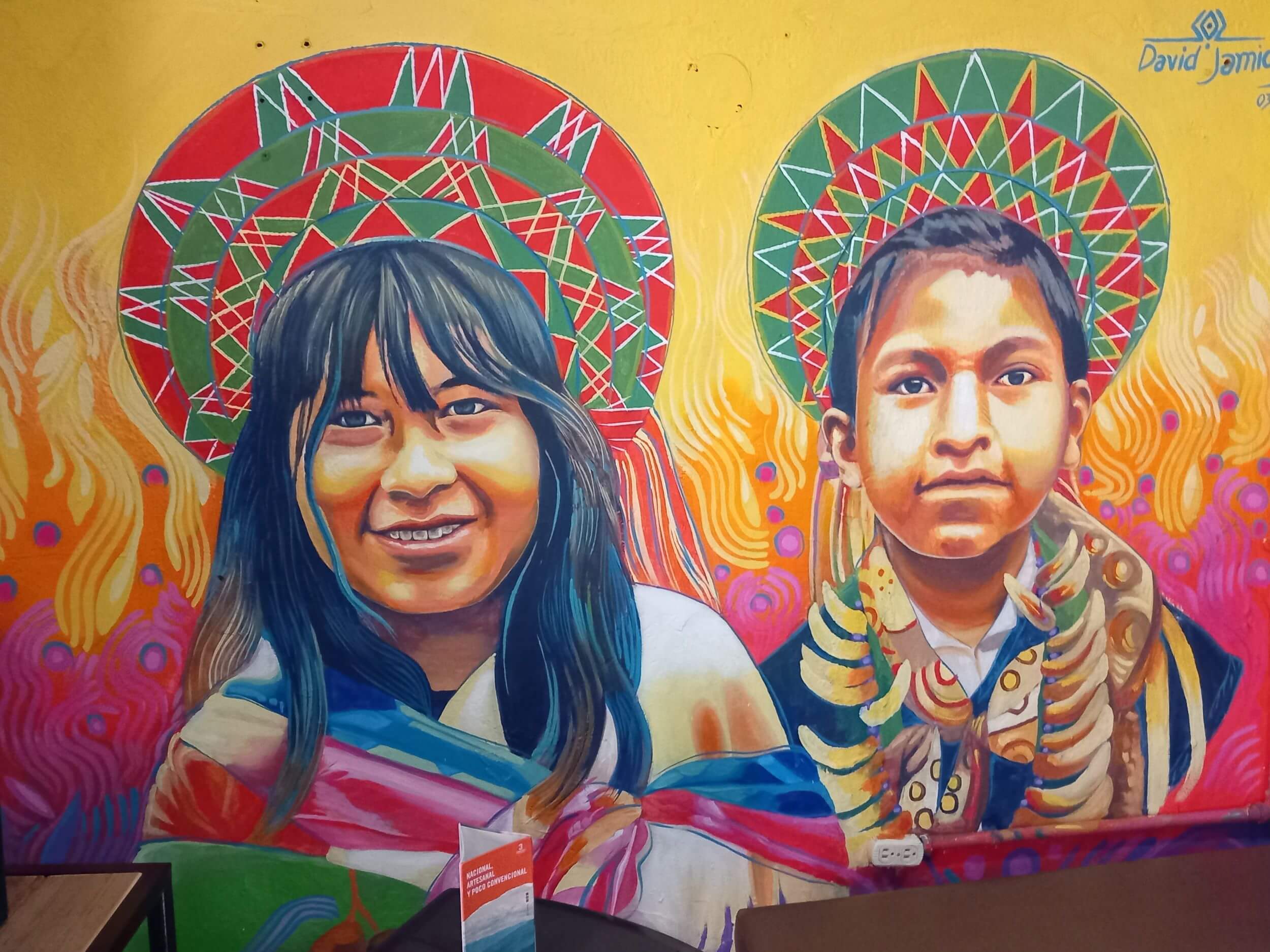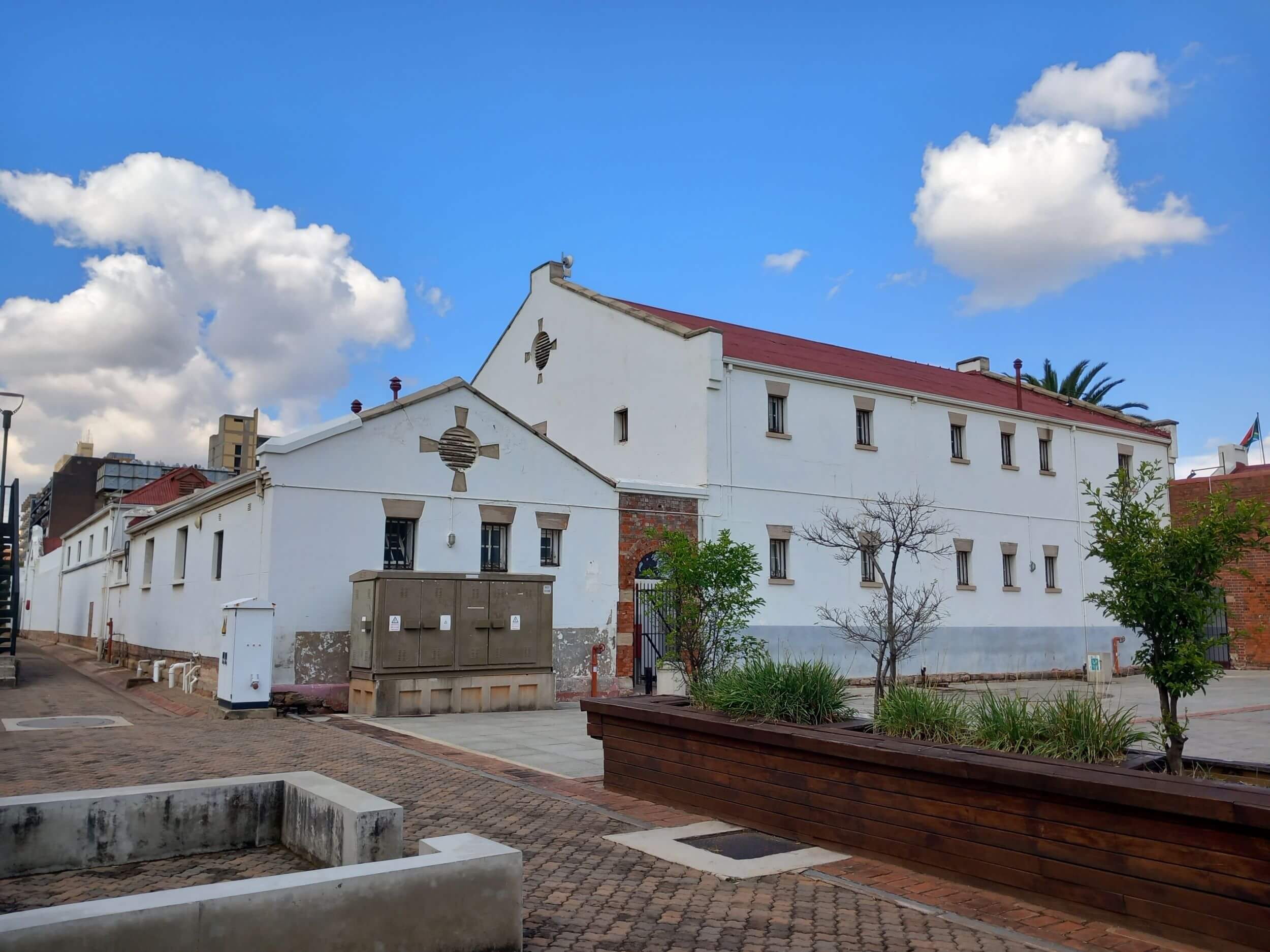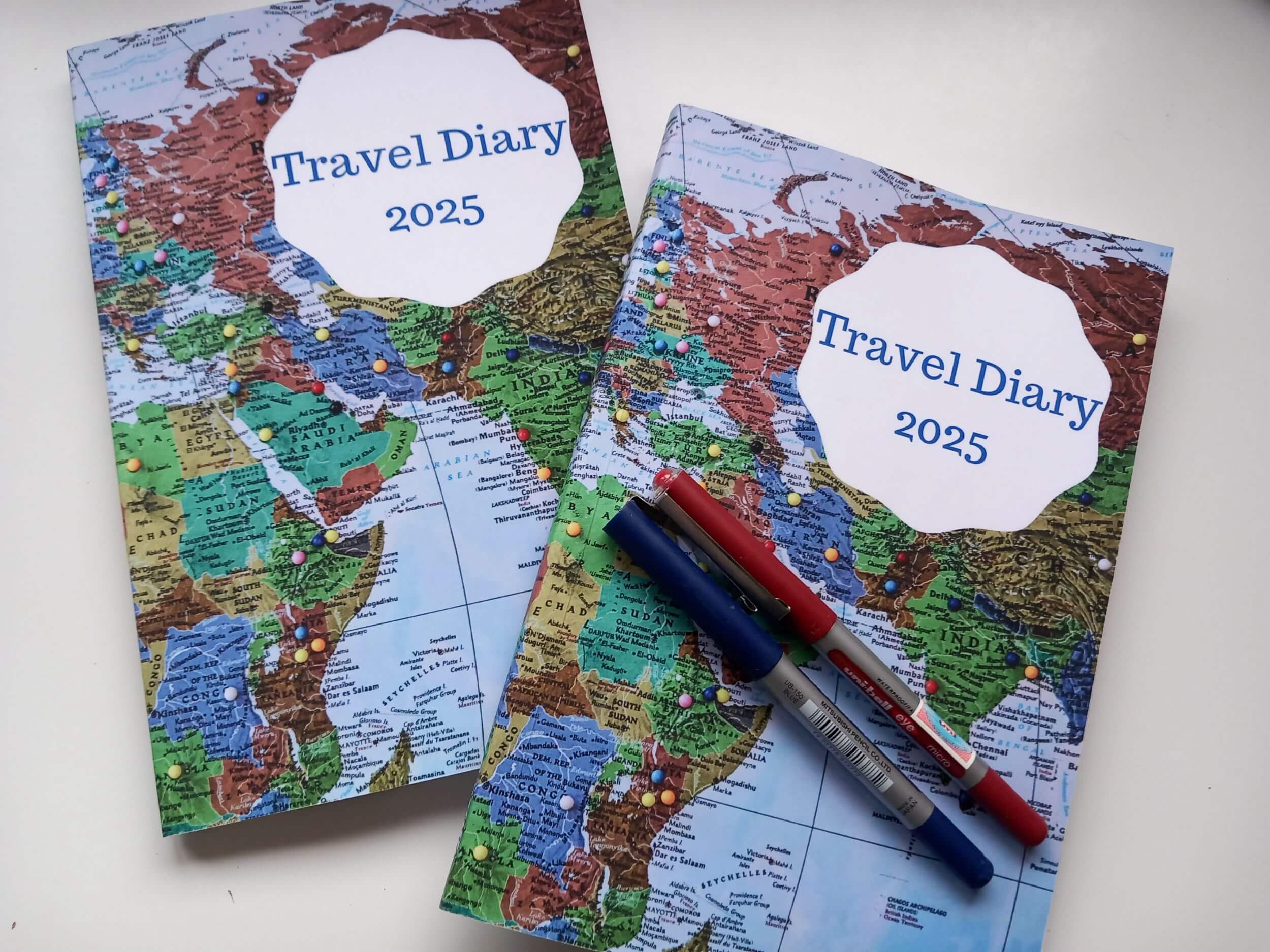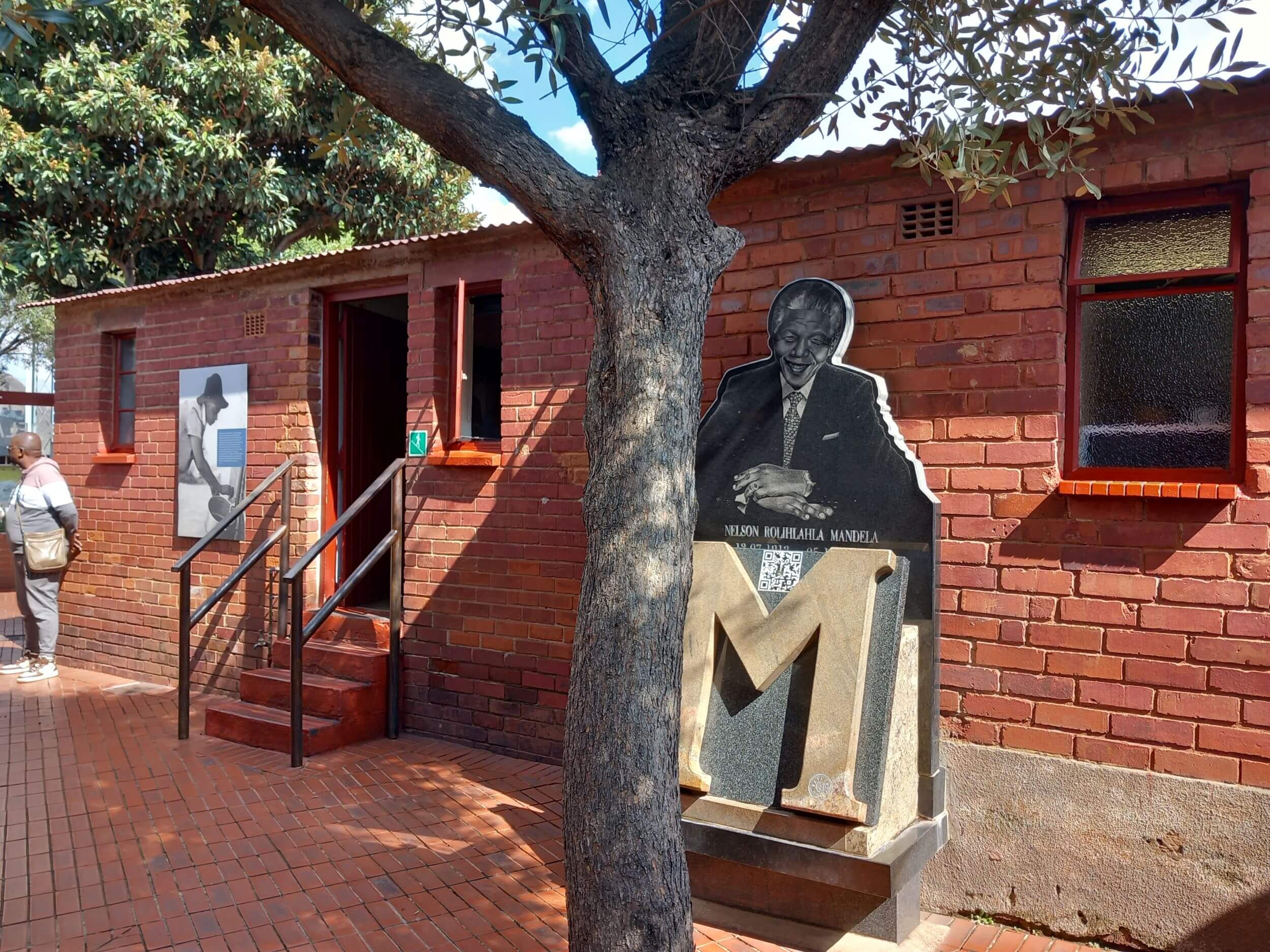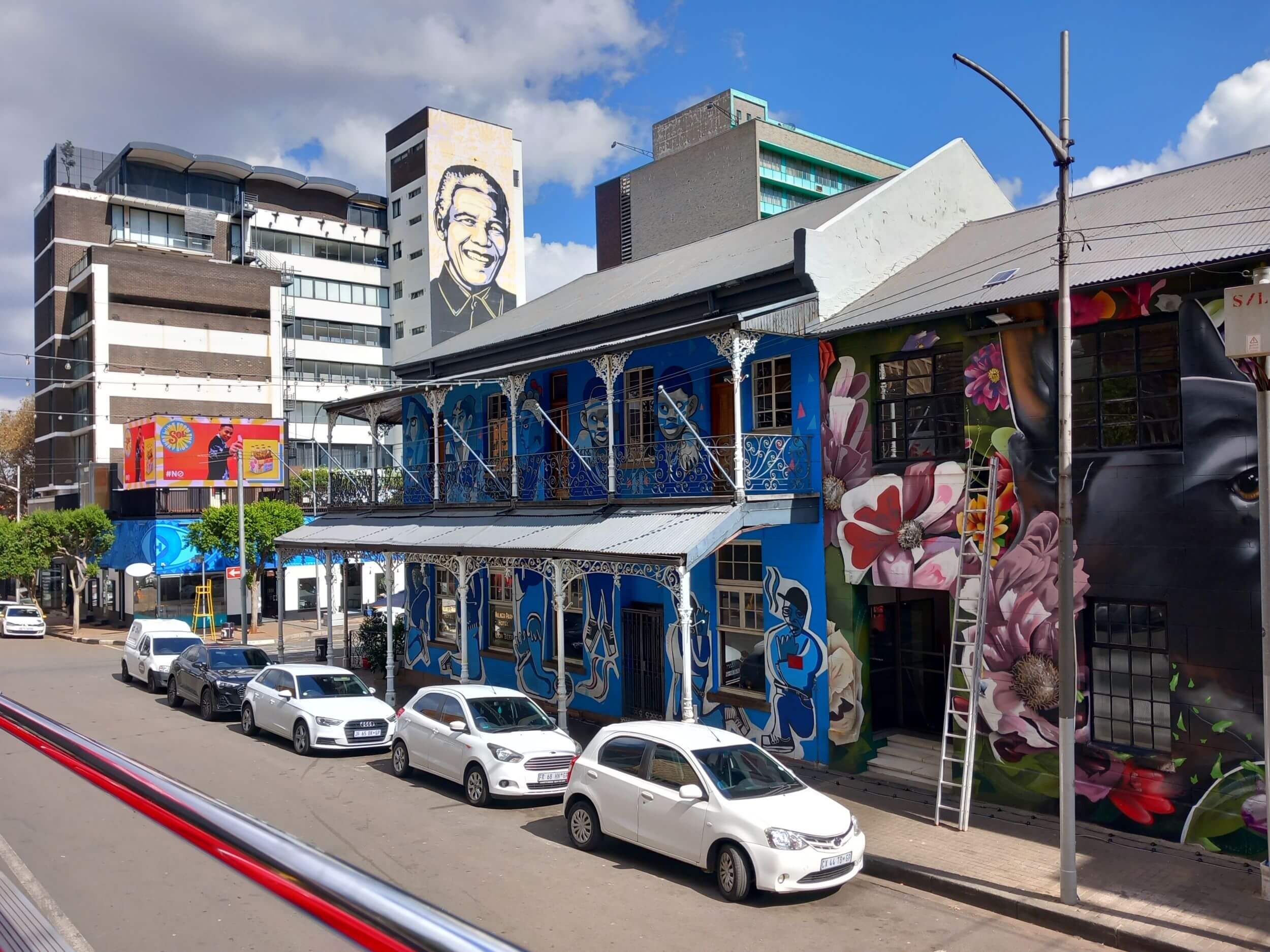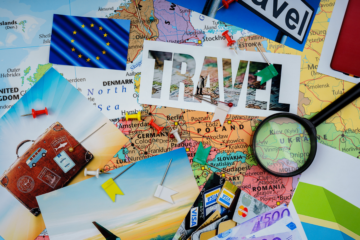Benin is a small, little-visited West African nation. This former French colony has a democratically elected government and enjoys relative peace and stability. It scores well in internationally-recognised surveys on safety, law and order, and human rights. The majority of the population of just under eleven million follow the voodoo religion.
The country has a rich history and culture to discover, as well as natural beauty, from the beaches on the Atlantic Coast in the south to the rugged scenery in the north. It shares land borders with Niger, Nigeria, Burkino Faso, and Togo, making it ideal for further exploration of West Africa. Now is the perfect time to go to Benin, before tourists start descending in large numbers!
In this article
Essentials
Visas
Visas are required for all travellers except nationals of the Economic Community of West African States (Ecowas). At the time of writing, it isn’t possible to get a visa on arrival into Benin. You must get one in advance. It is a very easy, if expensive, procedure, however.
You can apply for an e-visa online. You should apply at least seven days, but not more than 90 days, before the date of entry into Benin. The visa will be valid from the date you put in the application. The website is very straightforward to use. I received confirmation of our visas by e-mail before my payment had even finished processing! Then, I just had to print them off and carry them with us for presentation at the border. A single-entry tourist visa valid for 30 days costs €100.
VERY IMPORTANT! – You will also need a valid yellow fever certificate to show with your passport and visa.
Capital City
The capital of Benin is Porto Novo, although Cotonou is the largest city and this is where most business, commerce and foreign embassies are based. It is also home to Benin’s largest airport for visitors arriving from overseas.
Time Zone
The time zone in Benin is GMT +1.
Language
The official language of Benin is French, although the indigenous languages of Fon and Yoruba are widely spoken. In total, about 50 different languages can be heard in Benin.
Money Matters
Benin is a cash-based society. The currency used is the West African Franc, written as CFA or, confusingly, XOF! When speaking, the money is referred to as ‘ceefa’. At the time of writing, the exchange rate is roughly 600CFA to the pound, US dollar, or euro.
It is best to take a combination of cash (euros are easiest to exchange) and cards with you when travelling in Benin. Travellers’ cheques are not accepted anywhere, nor is Mastercard. There are ATMs all over, but be aware that the withdrawal limit per day is quite low. Stock up on CFA whenever you can!
Public Holidays
- New Year’s Day – January 1
- Voodoo Day – January 10
- Easter Monday – March/April
- Labour Day – May 1
- Ascension Thursday – May
- Pentecost Monday – May
- Independence Day – August 1
- Assumption – August 15
- Armed Forces Day – October 26
- All Saints’ Day – November 1
- Christmas Day- December 25
Benin also celebrates Muslim holidays.
Electricity
The supply is 220V and plugs are of the European two-round-pin variety. Don’t forget to pack a universal travel adaptor. Power cuts are frequent, so take a torch! We usually take two – a head torch and a flashlight with a hanging hook and a magnetic base.
Safety
Whilst Benin is generally safe, you should take the usual precautions:
- Try to always tell someone where you are going.
- Don’t walk alone after dark.
- Stick to well-lit areas in cities.
- Know the number for emergency services (117 for the police and 118 for the fire brigade in Benin).
- Lock your valuables in a hotel safe where possible and only carry a small amount of cash. If you need to carry more, use a money belt.
The beaches along Benin’s Atlantic coast are not safe for swimming because of the strong currents. Stick to hotel pools where possible.
You will hear shouts of ‘Yovo! Yovo!’ wherever you go. It means ‘white person’ and is generally harmless.
Always check the latest advice from your government before travelling. The UK’s foreign office information about Benin can be found here.
There is no UK diplomatic representation in Benin. If you need consular assistance, contact the British High Commission in Accra on +233 302213200.
Telephone
Benin’s country code is 229.
Mobile-phone coverage is very good and fairly cheap. The two main networks are Moov and MTN. Depending on what deal you have from your local provider, you might be better off buying a local SIM card on arrival in Benin and using that for mobile data. We paid CFA1000 for a card and CFA5000 for 10GB data. Top-up vouchers are widely available.
Trip Planning
The Best Time to Go
The temperature in Benin is between 28 and 32 degrees centigrade all year round. It rarely drops below 26 degrees, even at night. Benin’s wet season runs from June to October and is best avoided due to the high humidity. From November to February, it is generally warm and dry, but the Harmattan, a dry and dusty trade wind from the Sahara desert, can make for hazy skies. The hottest period is between March and May, after the Harmattan ends. This is the best time to see wildlife.
What to Pack
Clothes
Benin’s year-round warm climate makes the need for a coat redundant, although a rain jacket will be useful in the wet season. If, like us, you don’t feel the cold, you won’t even need a sweater. It’s a good idea to take walking shoes or boots as there are lots of opportunities to go hiking and trekking. The people of Benin, even the men, generally wear lots of bright colours, so don’t be afraid to take your Hawaiian shirts!! It’s perfectly acceptable to wear shorts and sleeveless tops, even in rural areas. Don’t forget a hat and sunglasses.
Other
- Travel documents
- Money and cards
- A first aid kit
- Personal medication
- Anti-malarials
- Insect repellent – we took one with 50% Deet which worked very well
- Sunscreen and after-sun
- Camera equipment
- Binoculars – there’s so much birdlife in Benin!
- Swiss army knife
- Water filter bottle – we swear by these! We no longer have to buy plastic bottles of water when we travel.
- Personal entertainment – music, reading material, playing cards
- Journal and pens
- Reusable shopping bag to reduce the amount of plastic you use
- Toiletries
- Travel towel for those impromptu waterfall swims!
- Sewing kit
CLICK HERE FOR MY FULL PACKING LIST FOR WEST AFRICA
Accommodation
Benin has accommodation to suit every budget with guesthouses and small hotels being the most common. If you’re looking for luxury, you may well struggle in Benin! We stayed in a variety of hotels and we also camped in the grounds of others on our West Africa tour. Some were more basic than others, but they were all clean and rooms were generally large. As I’ve already said, power cuts are common in Benin and, sometimes, the water doesn’t work either! In this case, a bucket shower works just as well! You just need to remember you’re in West Africa, so don’t expect western-style facilities all the time.
Food and Drink
The food in Benin is probably the best in West Africa. The starchy staple is igname pilé, boiled yams pounded into a dough and used to dip into soups and stews in the same way that we would use bread. Palm oil and groundnut oil soups are common. Pâte rouge, tomato and cornmeal cakes are popular and are widely available as street food. The Beninese don’t eat an awful lot of meat, but chicken is usually available on restaurant menus. In the south of the country, fish is a highlight of local cuisine. It’s usually bream or grouper served grilled or fried. Dried fish, similar to salt cod, is seen in every village market.
Benin produces a lot of lager-style beers which are refreshing after a long day in the sun. The local moonshine, usually brewed from millet and served as shots, is best avoided (in my opinion)! Carbonated soft drinks are widely available, but they are invariably the full-sugar variety. Diet drinks are very hard to come by. When we found Coke Light in a little shop in Natitingou I bought all they had!
Getting Around
Bus
Buses are the most reliable and comfortable way to get around Benin, especially between cities in the south of the country and Natitingou in the north. ATT and Confort Lines are the best companies; their vehicles are generally well-maintained and have air-con. You should arrive early or book the day before to guarantee your seat.
Bush Taxi
These are usually beaten-up old vehicles covering outlying areas that buses don’t go to. They don’t have the best safety record. If you have no other way of getting to where you want to go, they usually leave from gares routières early in the morning.
Zems
Zems, short for zemi-johns or motorbike taxis, are everywhere in Benin. In many places you’ll be hard-pushed to find a car taxi if you only want to go a short distance. They are the fastest and most convenient way of getting around towns and cities, but they are almost certainly the most dangerous, too! The drivers ride like lunatics and passengers are rarely offered a helmet. Use them at your own risk! Most of our group did use them a couple of times in Abomey; none of them came to any harm!
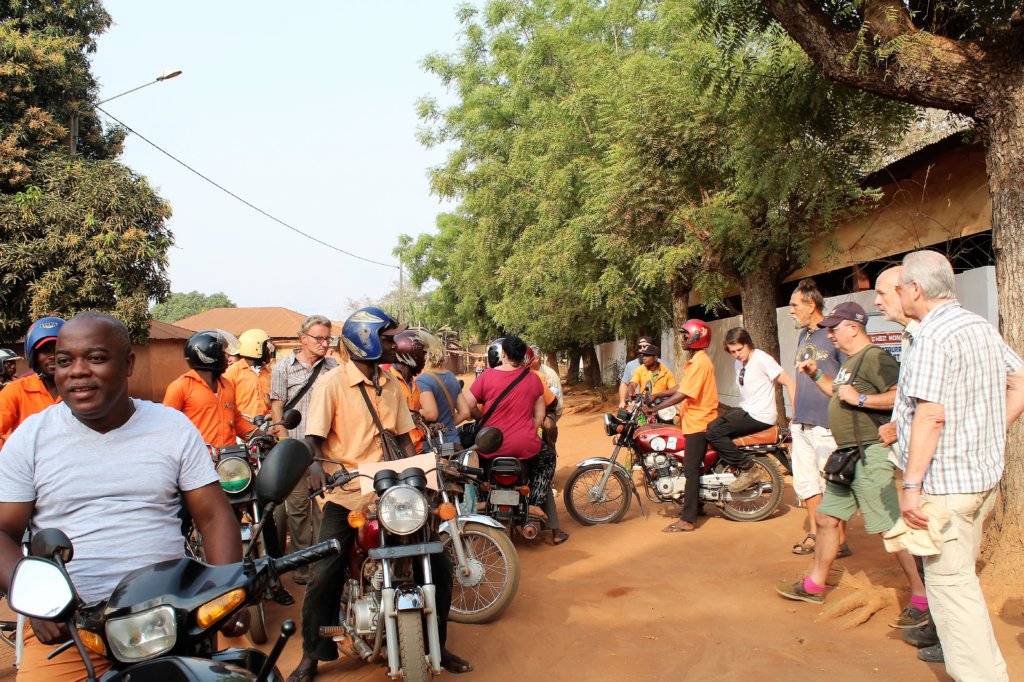
Car
It is possible to self-drive in Benin. You can organise car hire in Cotonou. It will cost around CFA20,000 plus fuel a day for a family saloon. You would probably be better off hiring a 4WD with driver for about CFA50,000 a day including fuel.
Things you MUST do and see in Benin
Go to Ganvié
This stilt village in the middle of Lake Nokoué is billed as the ‘Venice of Africa’. You get there by boat from Abomey-Calavi. It is a vibrant, colourful community; a must-see site on any visit to Benin. We spent two days there and loved every second of it!
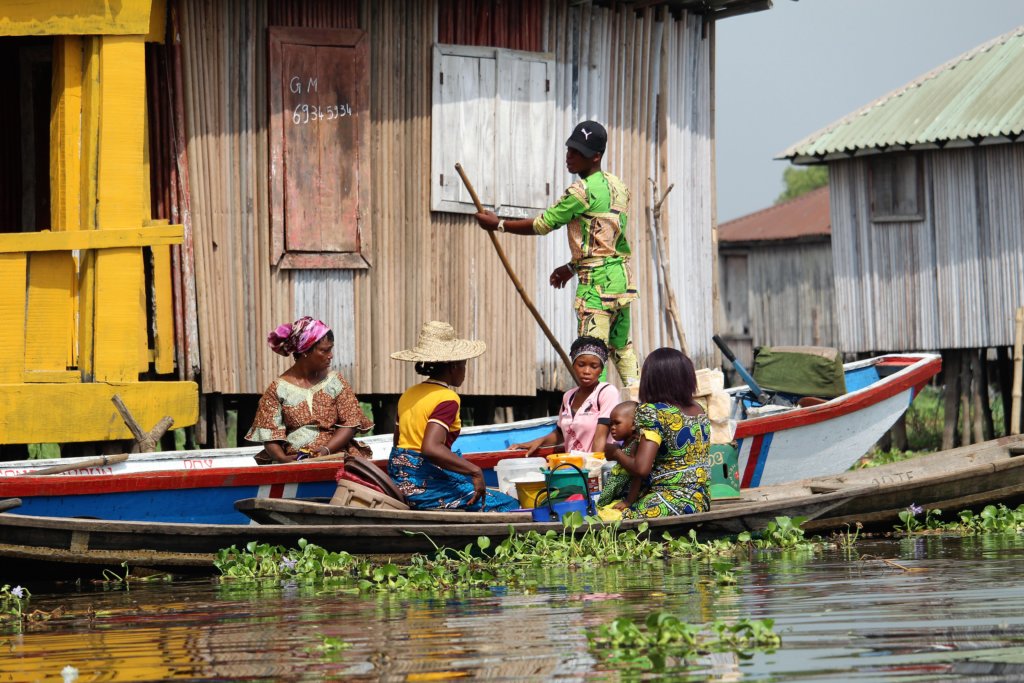
Visit Pendjari National Park
No visit to Benin would be complete without a couple of days in Pendjari National Park. It’s the best place in West Africa to see wildlife. The park is home to elephants, the critically endangered maneless West African lion, hippos, buffalo, warthogs, civet, baboons, hyena, and many species of antelope, including kobs, roans, western hartebeest, bushbucks and waterbucks. There are also thought to be a few remaining Northwest African cheetah, though these are rarely sighted. 460 bird species live here, too. We loved the time we spent in the park.
READ MORE ABOUT PENDJARI NATIONAL PARK
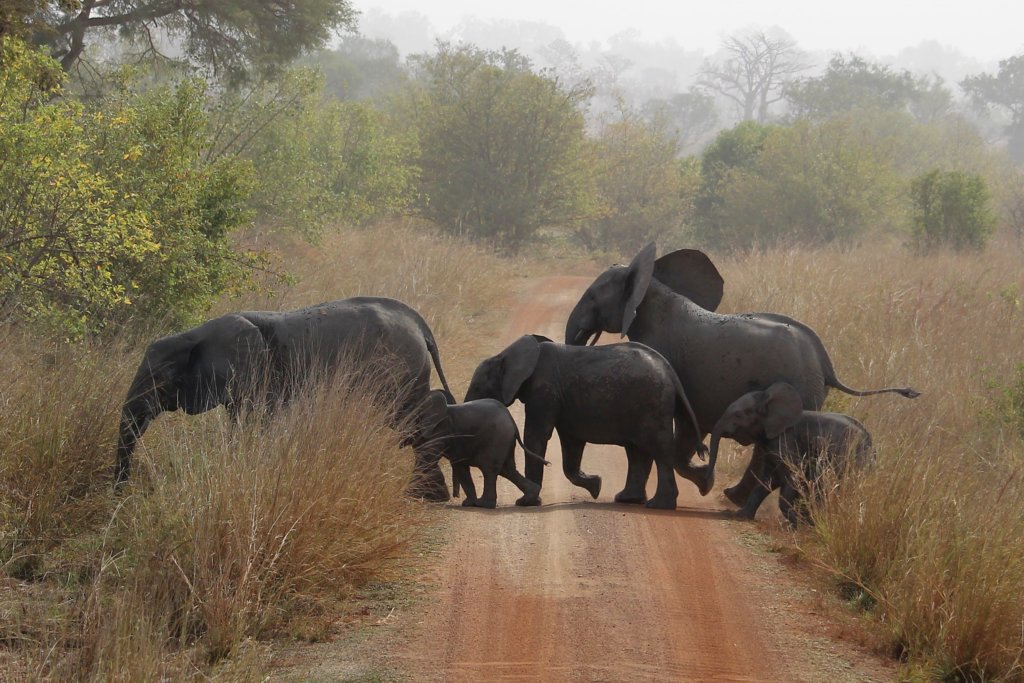
Learn about Voodoo
Voodoo is an official religion in Benin with over 60% of the population calling themselves adherents. It’s a fascinating belief system affecting every part of life including culture, music, dance, and medicine. It is more prevalent in the south of the country. You can visit a fetish market in Abomey, go to the Python Temple in Ouidah, and attend a voodoo ceremony in Grand Popo.
READ MORE ABOUT VOODOO IN BENIN
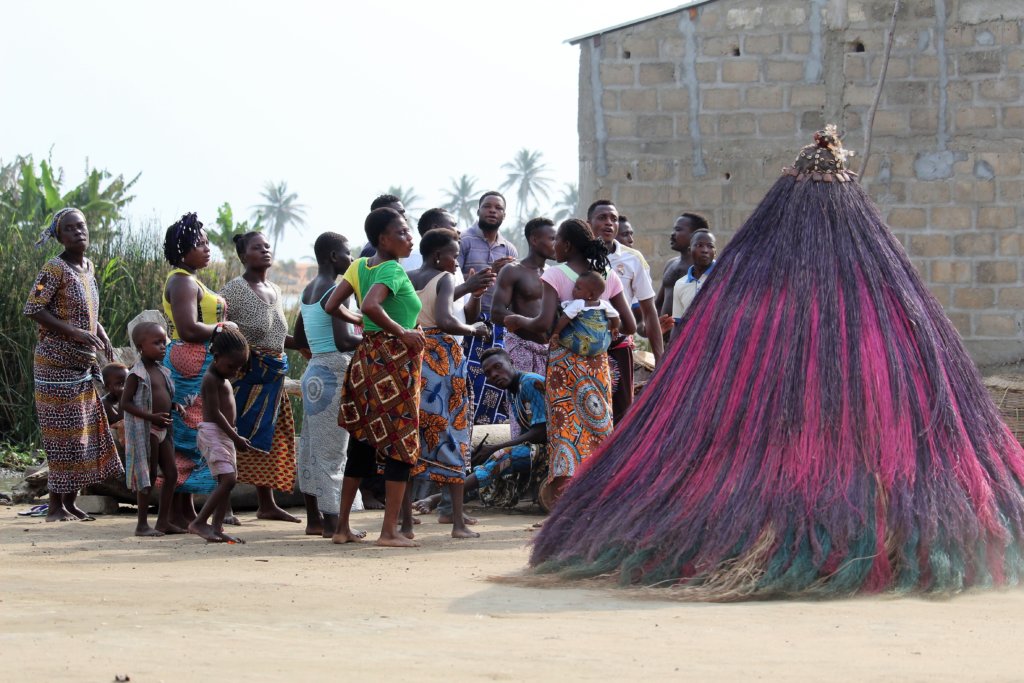
Walk the Slave Route
The most moving experience of our time in Benin was undoubtedly walking the four-kilometre route slaves would have taken from the fort in Ouidah where they were held in captivity to the beach where they were loaded on to ships. They were subjected to unspeakable indignities and terrible cruelties. Walking in their footsteps gave us a real and shocking sense of man’s inhumanity to man.
READ MORE ABOUT THE SLAVE ROUTE IN OUIDAH
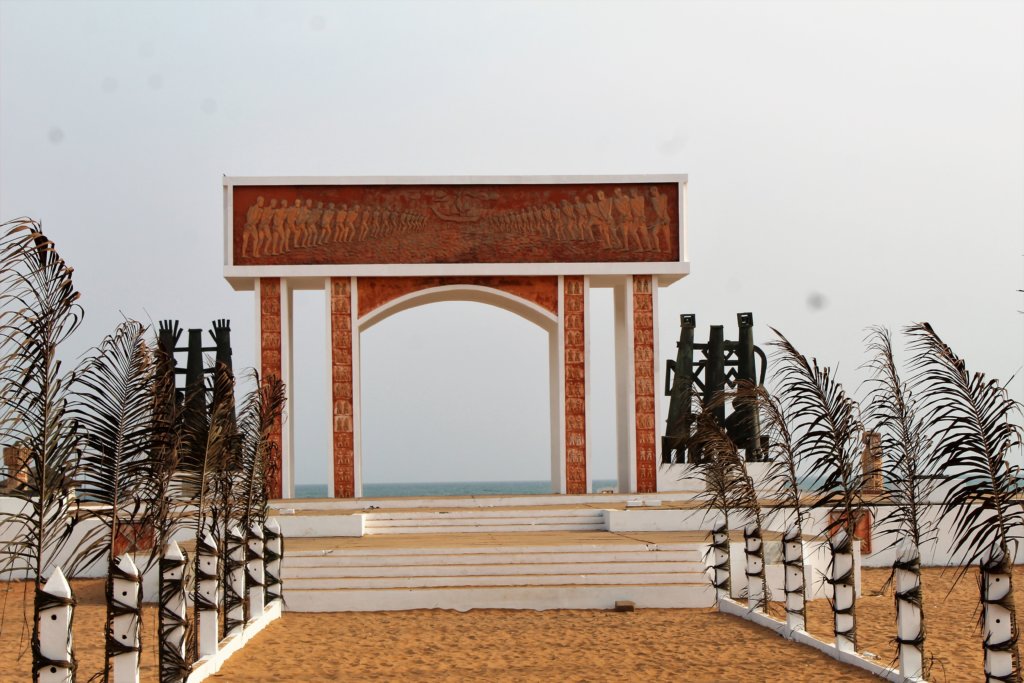
Discover the Dahomey Kingdom
Visit Abomey to learn about the ancient kingdom of Dahomey, a force which frustrated colonial powers for centuries. You can feel the history here, not least in the proud modern-day inhabitants, most of whom claim to be descended from the kings!
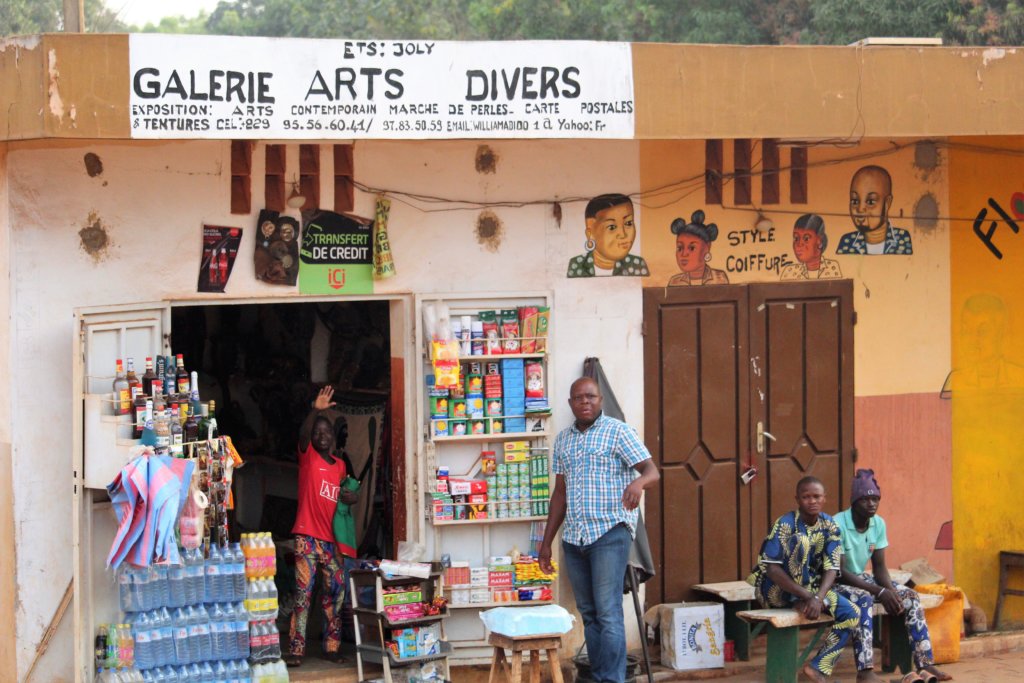
Visit the Tata Somba Region
The Tata Somba Region is situated in the north of Benin and Togo because the colonial powers who drew up the country borders gave no thought to the indigenous people who had their homes there! The ‘tata’ is the unique home of the Somba people, designed like a fortress. It is found nowhere else in the world. A visit here is an education into a disappearing way of life. It’s fascinating, and a privilege to be allowed to see how these people live.
READ MORE ABOUT THE TATA SOMBA REGION
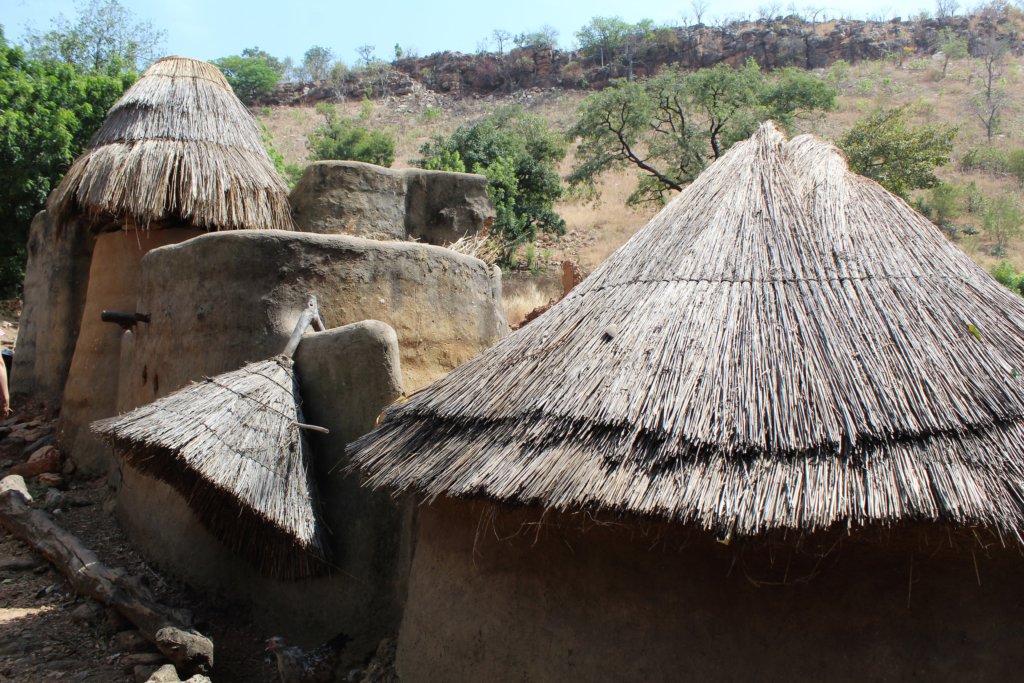
Relax on the Beach at Grand Popo
When you have had your fill of history, wildlife and culture, finish your trip to Benin with a few days ‘R and R’ on a palm-fringed beach. Whilst the currents in the Atlantic make sea-swimming difficult, most resorts have a pool.
We stayed at the Auberge de Grand Popo, located right on the beach. We were due to be camping there and some of our group did pitch their tents directly on the golden sand. Mark and I, though, chose to upgrade to one of the very comfortable, air-conditioned rooms! The auberge had a lovely restaurant and a well-stocked bar where I enjoyed my first gin and tonic since arriving in West Africa – with ICE!!!
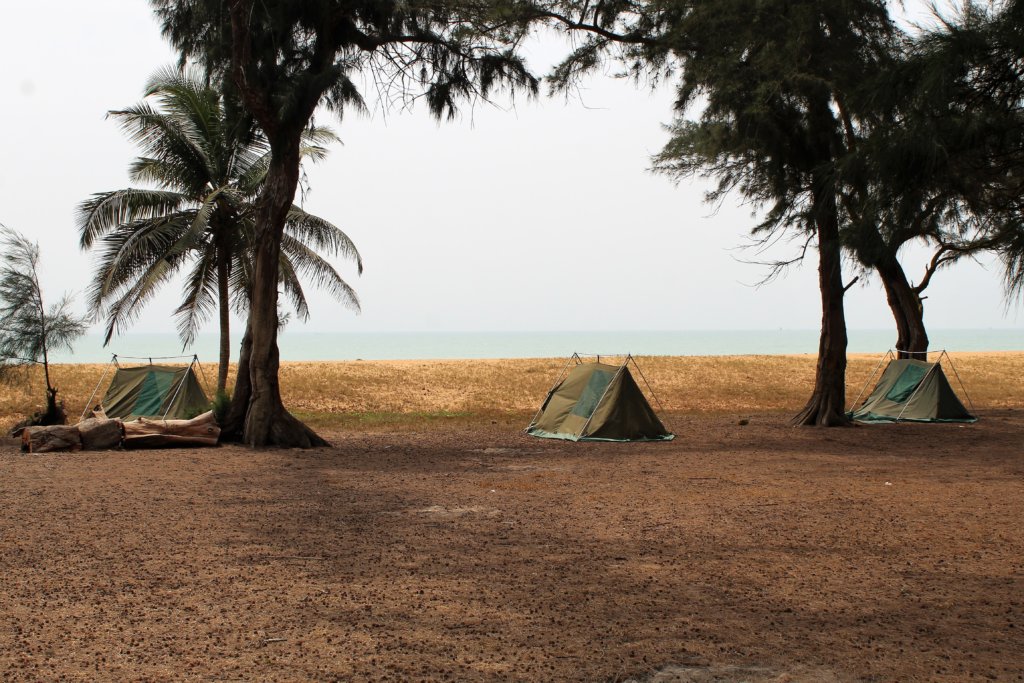
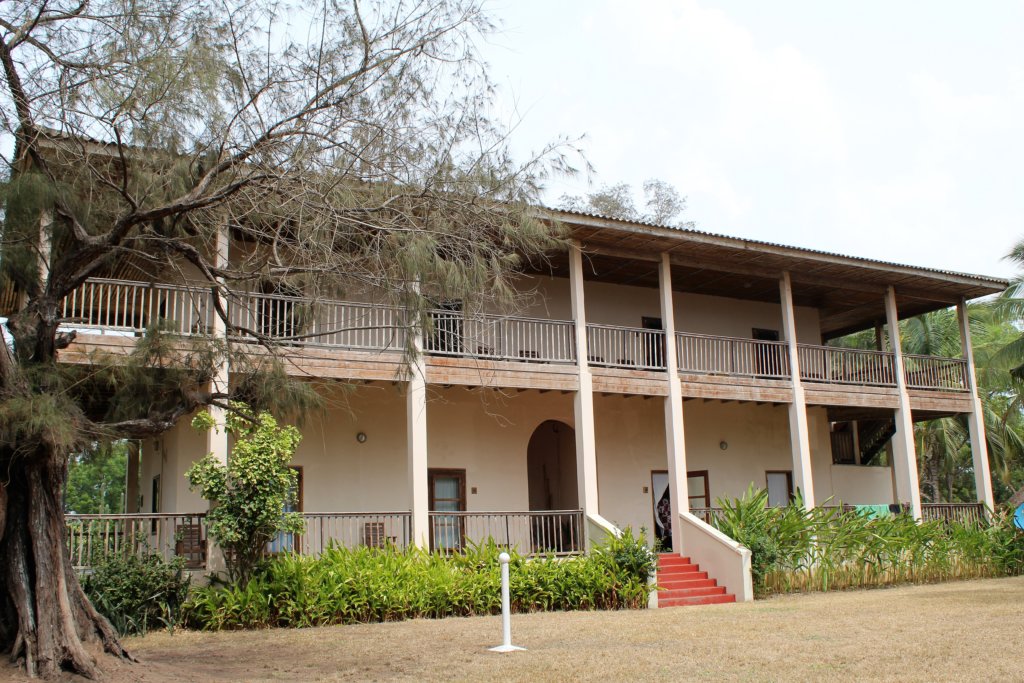
Further Reading on Benin
BOOK YOUR OWN TOUR NOW!!
IF YOU LIKE WHAT YOU’VE READ, PIN IT FOR LATER!!
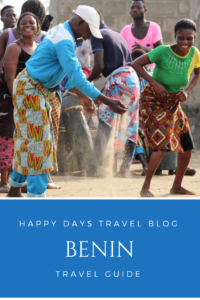
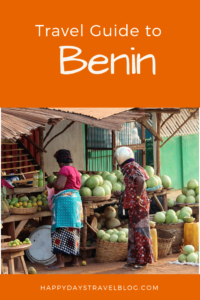

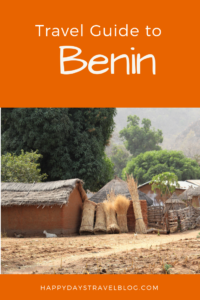
Disclosure: This post contains affiliate links. If you click through for more information, or to make a purchase, it may result in a small commission coming my way. Please note that there is no extra cost to you associated with this. Thank you so much for supporting my site.
Join our mailing list

Sign up to receive our monthly newsletter. Keep up with what we're doing and be the first to receive special offers and insider tips.

